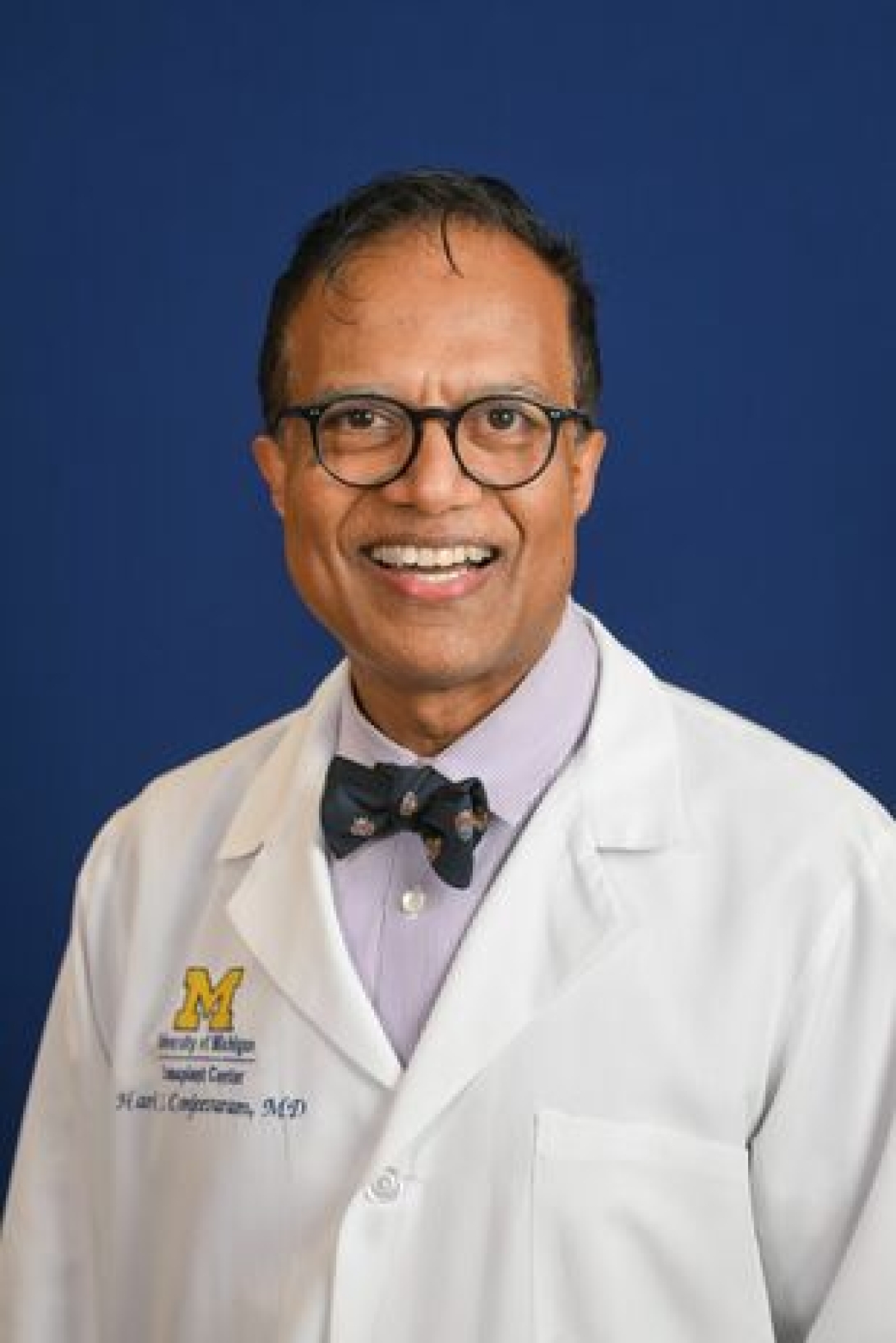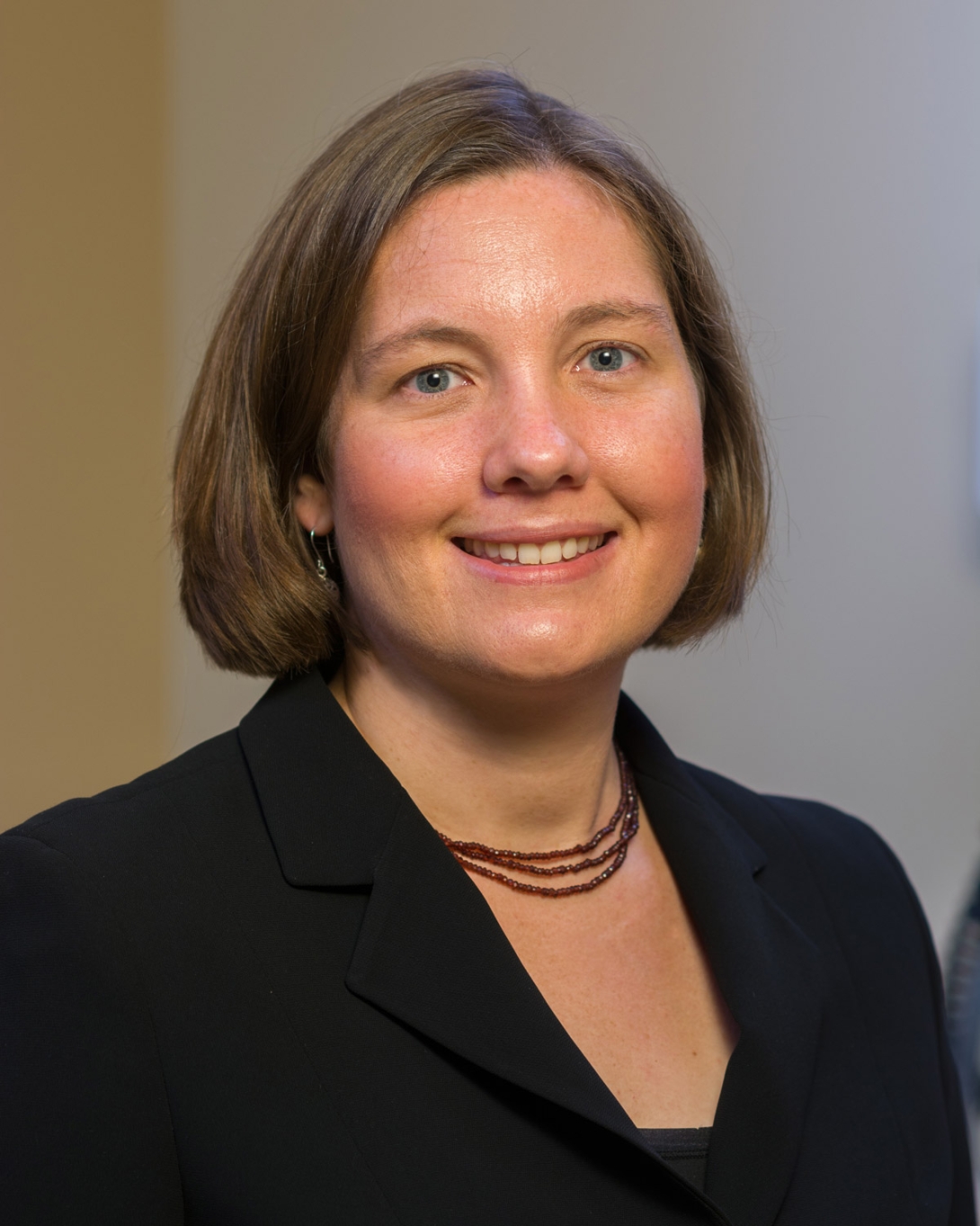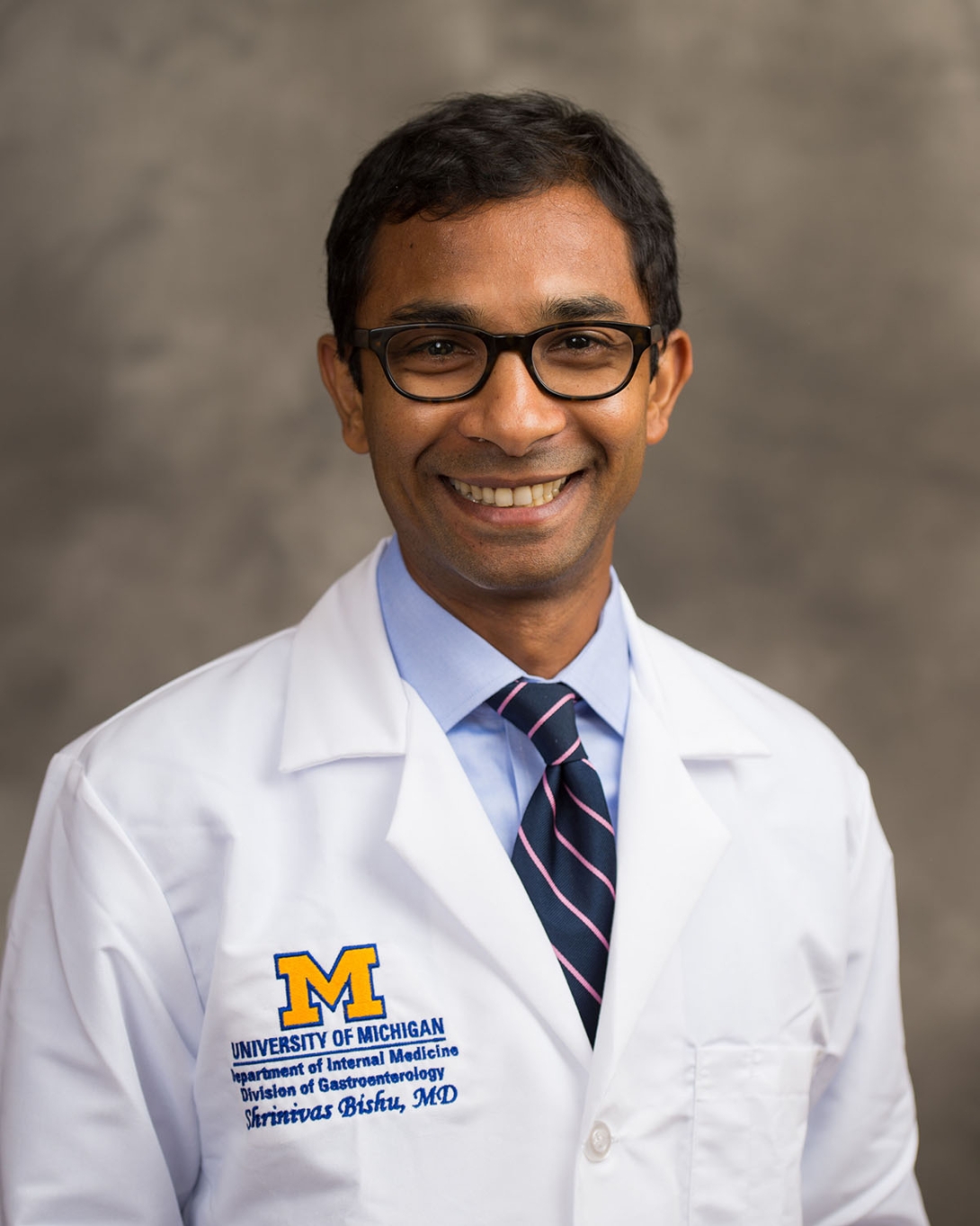
The primary aim of our three-year Gastroenterology Fellowship Training Program is to develop successful academic gastroenterologists with outstanding clinical skills and specialty expertise in basic or clinical investigation, teaching or clinical practice.
Recognizing that excellent physicians are required for health care delivery in the community, the GI Fellowship Training Program has a secondary goal of training outstanding practicing clinicians who maintain a lifelong scholarly interest in basic disease mechanisms.
Thank you for your interest in the three-year Gastroenterology Fellowship Training Program at the U-M Medical School Department of Internal Medicine.
Applications are processed through ERAS ONLY.
Paper applications will not be accepted.
- One letter of recommendation from the Director or Chairman of your Internal Medicine Department.
- Two additional letters of recommendation from other members of your medical school Internal Medicine faculty.
- For graduates of International Medical Schools, we require an additional recommendation letter from an Internal Medicine faculty physician attesting to your clinical performance in the United States.
- Step 1 and Step 2 USMLE scores (optional).
- You are welcome to transmit additional letters, published papers, and supporting information at your discretion. Please note that these must also be submitted through ERAS.
- IMPORTANT – We do not offer preliminary positions through the match.
- We use a multicriteria-based selection process; therefore, we do not provide minimum score requirements, nor do we have a medical school graduation year requirement. We accept J-1 ECFMG certified visas only.
- For salary and benefit information, consult the University of Michigan House Officer Association website.
- International medical graduates (IMG) can contact the Educational Commission for Foreign Medical Graduates (ECFMG) for their application materials and eligibility requirements. Application materials will be sent only to those candidates who meet ECFMG requirements. Please write to: ECFMG-ERAS Program, P.O. Box 13467, Philadelphia, PA 19104-3467, U.S.A., or go to www.ecfmg.org to download their form.
- IMG applications to our program must possess a letter from an Internal Medicine faculty member who served as a supervisor/instructor to the applicant at a U.S. academic institution, attesting to the applicant’s clinical experience and competence at that institution.
Our program offers three distinct tracks that allow for more opportunity to individualize your training to meet your goals.
- Clinical Scholar track (“Gastroenterology/Clinical Investigator Research” – NRMP Program Code 1293144F0)
- NIH-funded T32 Clinical Research track (“Gastroenterology/Research-Outcomes” – NRMP Program Code 1293144F2)
- NIH-funded T32 Basic/Translational Research track (“Gastroenterology/Basic Science Research” – NRMP Program Code 1293144F1)
Fellows following both the Clinical Scholar track and NIH-funded T32 Basic/Translational Research track will spend the entire first year on the clinical gastroenterology services of the University (about 8 months) and VA Hospital (about 4 months) acquiring basic endoscopic skills and a firm clinical foundation in gastroenterology. In contrast, fellows following the NIH-funded T32 Clinical Research track will spend about 10 months in formal research training during their first year.
In their second and third years, fellows following the Clinical Scholar track will assume a more supervisory role in the clinical services of the two hospitals, while also learning more advanced diagnostic and therapeutic techniques. These fellows will also be provided with protected time for research. The specific amount of research time depends on the long-term goals and interests of the individual fellow.
Fellows following the Basic/Translational Research track will have a significant amount of time for protected research, summing to 18 months total during their second and third years.
For those fellows following the Clinical Research track, their second year will be devoted primarily to clinical training, and their third year will combine additional clinical training and research time, for a total of 18 months of research time.
In addition to our 3-year GI Fellowship Training Program, we have a 4th-year fellowship program in advanced endoscopy, a 4th-year fellowship program in transplant hepatology, and a 4th-year fellowship program in esophageal disorders.
The University of Michigan offers highly competitive salaries and generous benefits to our fellows and advanced trainees. Trainee salary will be commensurate with that of a House Officer at an equivalent level of training based on the HOA contract.
Please view the NIH-funded T32 Clinical Research Training Program page for information about the program and how to apply. Please send an email to [email protected] if you have any questions.
We are committed to equipping each fellow with the necessary tools they need to excel as experts and leaders, and empowering them to advance patient care, research and education in gastroenterology and hepatology.
The Department of Internal Medicine (DOIM) Division of Gastroenterology & Hepatology is committed to creating and cultivating a diverse and inclusive community that provides our faculty, learners and staff with the opportunities and support they need to thrive. Visit the DOIM Office of Diversity, Equity, Inclusion & Well-Being to learn more.

Program Director
Fellowship - Gastroenterology

Program Director of Fellowship
Gastroenterology

Assistant Professor of Internal Medicine

Expand your career trajectory in a high-volume academic medical center that also supports and excels in a wide range of basic science, translational and clinical research programs.

We find a new reason to love Ann Arbor nearly every day — year-round outdoor activities, cultural experiences, a growing food scene, and a welcoming, family-friendly atmosphere are just a few that come to mind. Explore all that Ann Arbor and our surrounding communities have to offer.